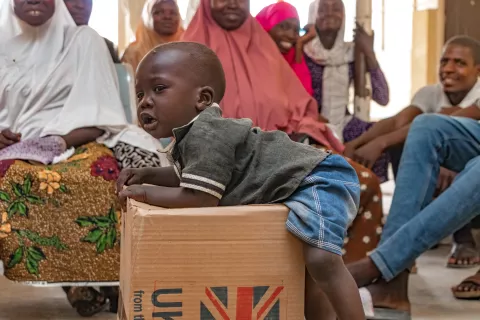First 1,000 Days Formative Study Report
Formative Research on Key Child Survival and Nutrition Practices in the First 1,000 Days of Life: Findings

Highlights
Poor nutrition during the most crucial period for children’s growth and development – the first 1,000 days through pregnancy until a child’s second birthday – can cause irreversible damage to a child’s growing brain and limit their growth potential. In turn, these developmental effects will have ripple effects, affecting that child’s ability to do well in school and ultimately the number of children who are able to rise out of poverty and contribute to the larger society and economy (FHI Solutions LLC, 2022).
It is well established that a variety of factors contribute to maternal, infant, young child and adolescent nutrition (MIYCAN). While hygiene practices and access to adequate nutrition, health, social protection and health and water, sanitation and hygiene (WASH) services are essential for optimal nutrition and health outcomes, the causes of malnutrition are complex and deeply rooted in household and community-level factors, extending to sociocultural contextual and structural factors in the larger society. Notable among these contextual factors, and less well understood, are social and gender norms, which affect women’s and girls’ ability to achieve equal health, education and socioeconomic outcomes.
To obtain an in-depth understanding of the factors leading to MIYCAN, health and WASH key practices in Nigeria during the first 1,000 days of life, the United Nations Children’s Fund (UNICEF) commissioned this formative research study.




